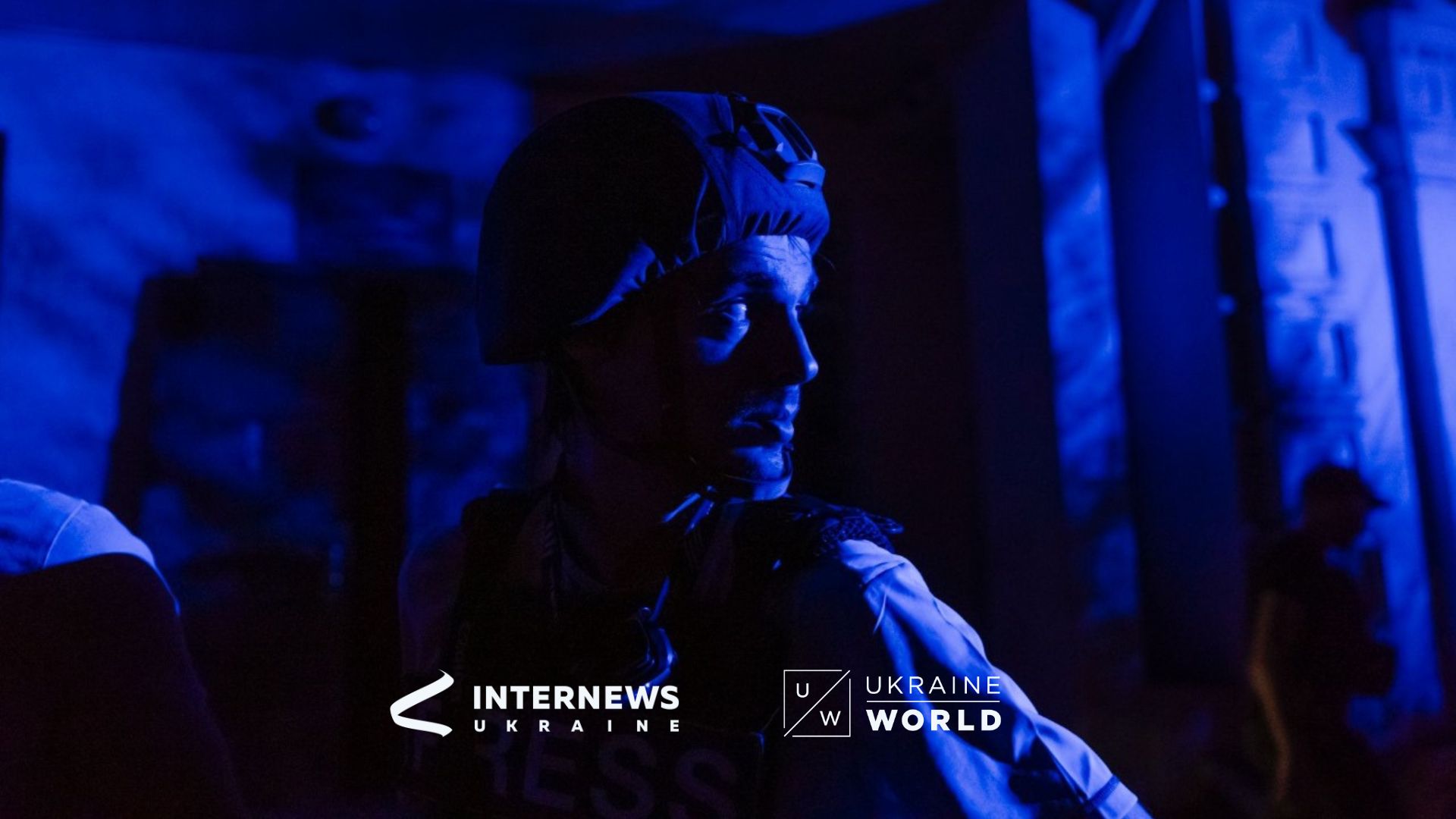
Stas believes that one cannot get tired of the war while living in it. Being a quite rare thought nowadays, it reveals what Stas has chosen both as a journalist and as a person: to remain in the context, work with it, and take away important messages to share with the world.
He adds with a joking smile that when he needs a distraction, he can always read some book about the prelude to World War 2.
You can say that you are tired and exhausted, as this war has been going on for 10 years already and so on. Sure, but you still have to do something. As Lewis Carroll said, we must run as fast as we can just to stay in place.
That 'running,' however, is rather limited by territory and the feeling it projects on you. These are Ukraine and insecurity.
Stas has worked during independent Ukraine's most turbulent events. He reported on the Maidan Revolution and the trials that took place in its aftermath, has frequented frontline areas since 2014, covered the COVID pandemic from Ukrainian hospitals, and now finds himself reporting from the midst of the greatest cataclysm in his country's modern history.
"When I was on assignment near the frontline, I would usually stop in Sloviansk or Kramatorsk afterward. These were relatively calm cities where I could exhale in safety. Nothing had hit there; as Russia had not yet started using its missiles. Now, there are no safe zones.
We are Ukrainians in Ukraine, a country at war, and we cannot escape this war. No matter where you go in Ukraine, you are always at risk."
The scale, he says, is the main distinction between his previous and most recent war experience.
Working in places from where the hope slowly dissipates only stresses how deeply the situation has changed. For instance, filming in a pre-front nursing home in the frontline village of Tavriyske in Zaporizhzhya. Stas still thinks it to be one of the hardest experiences.
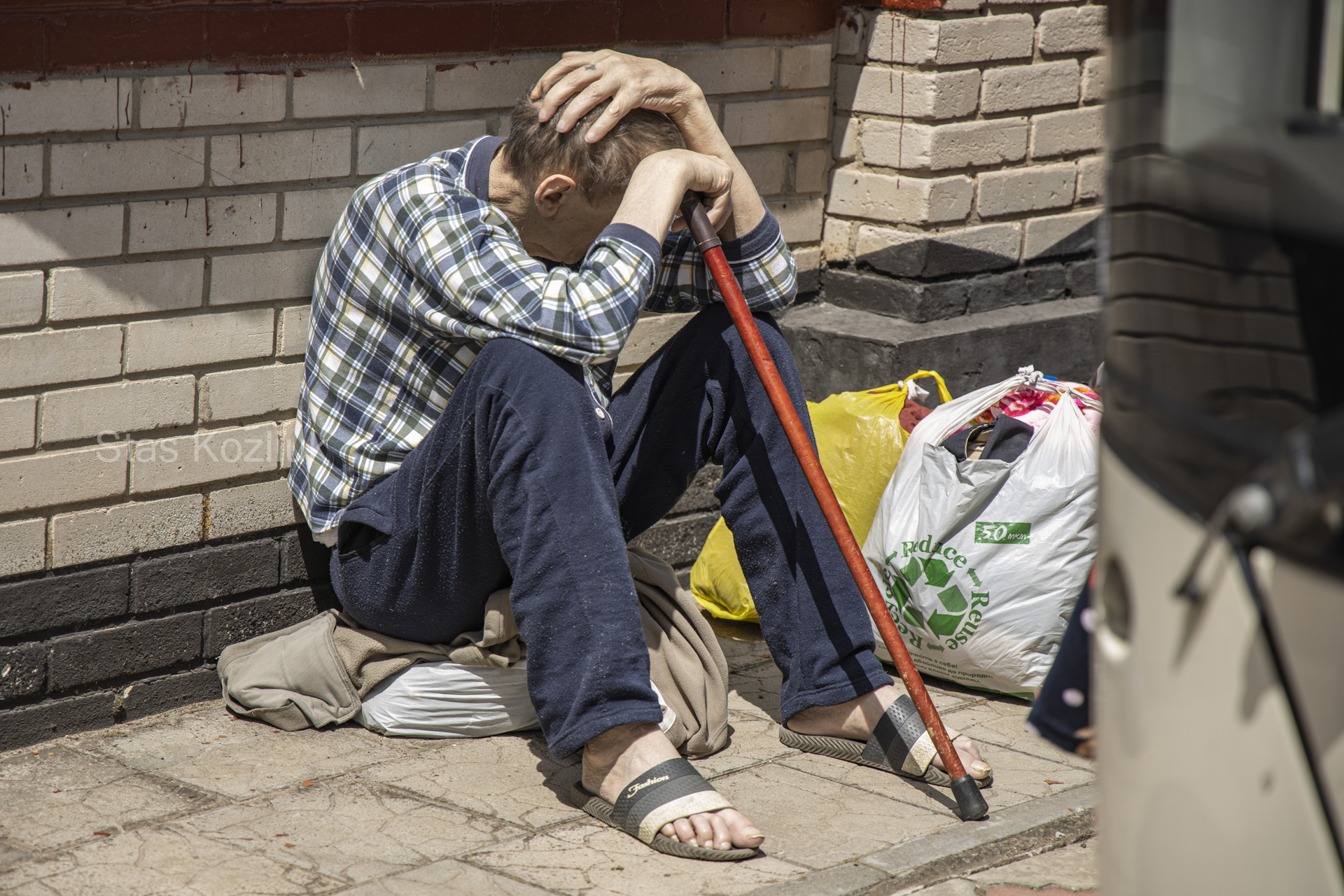
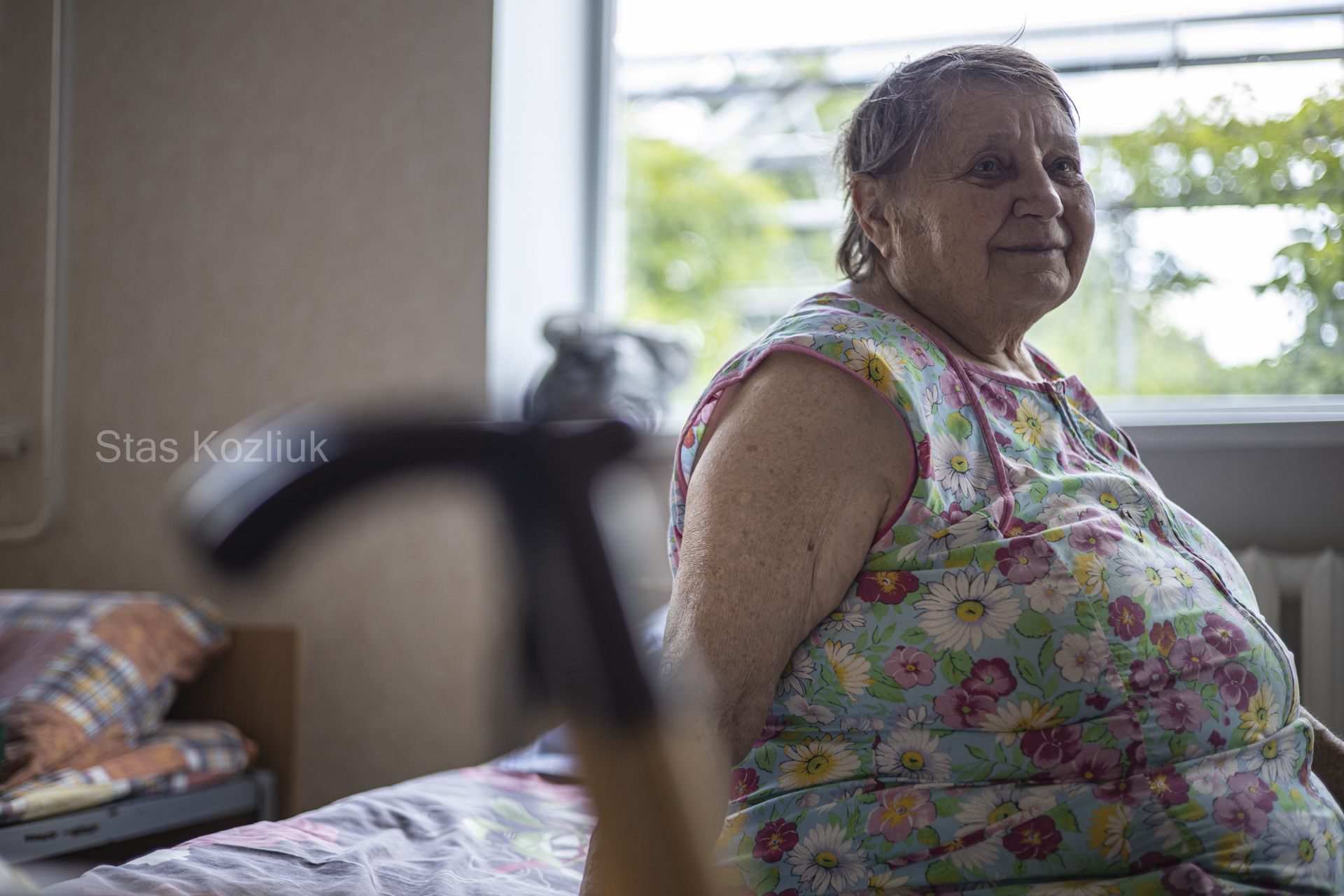
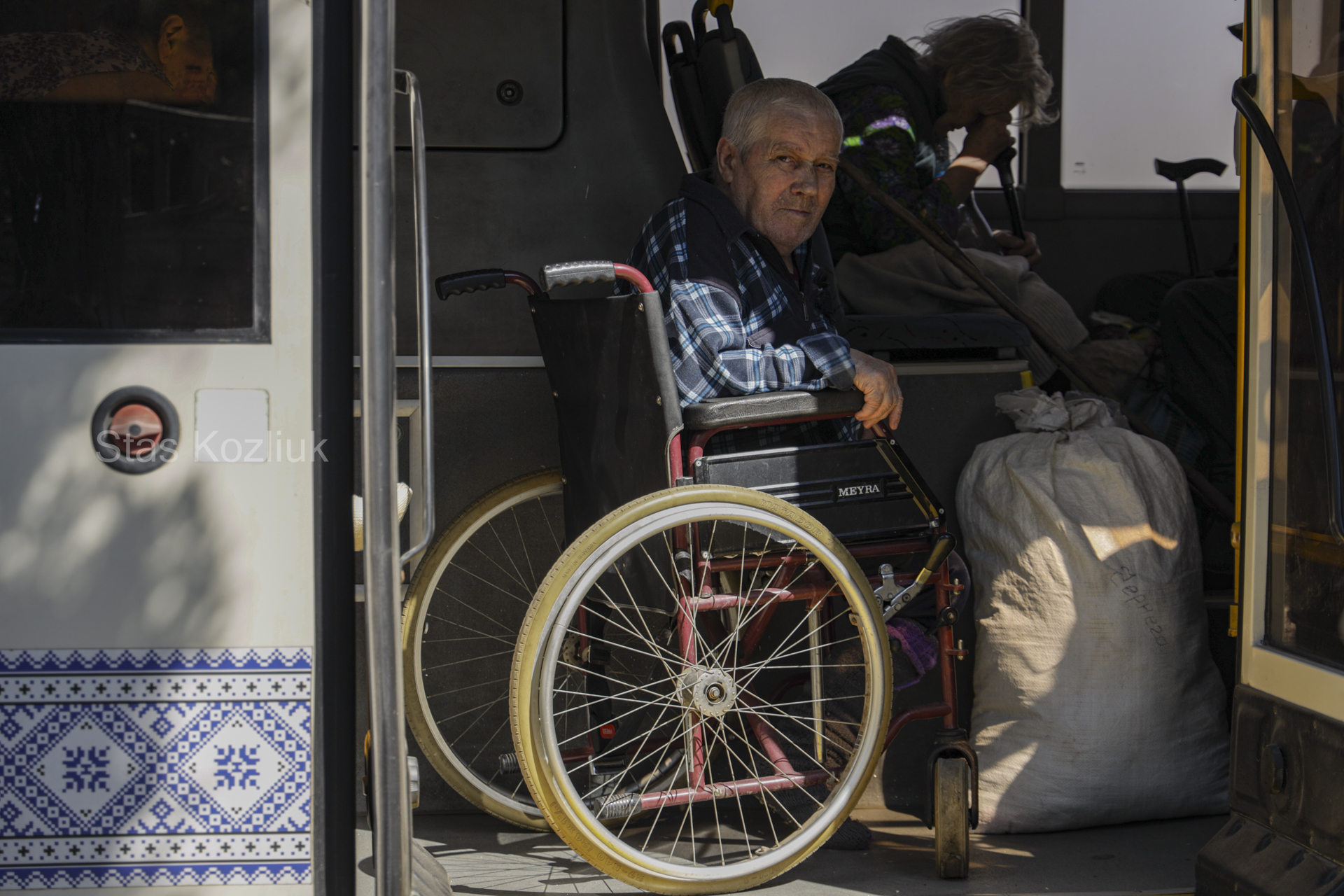
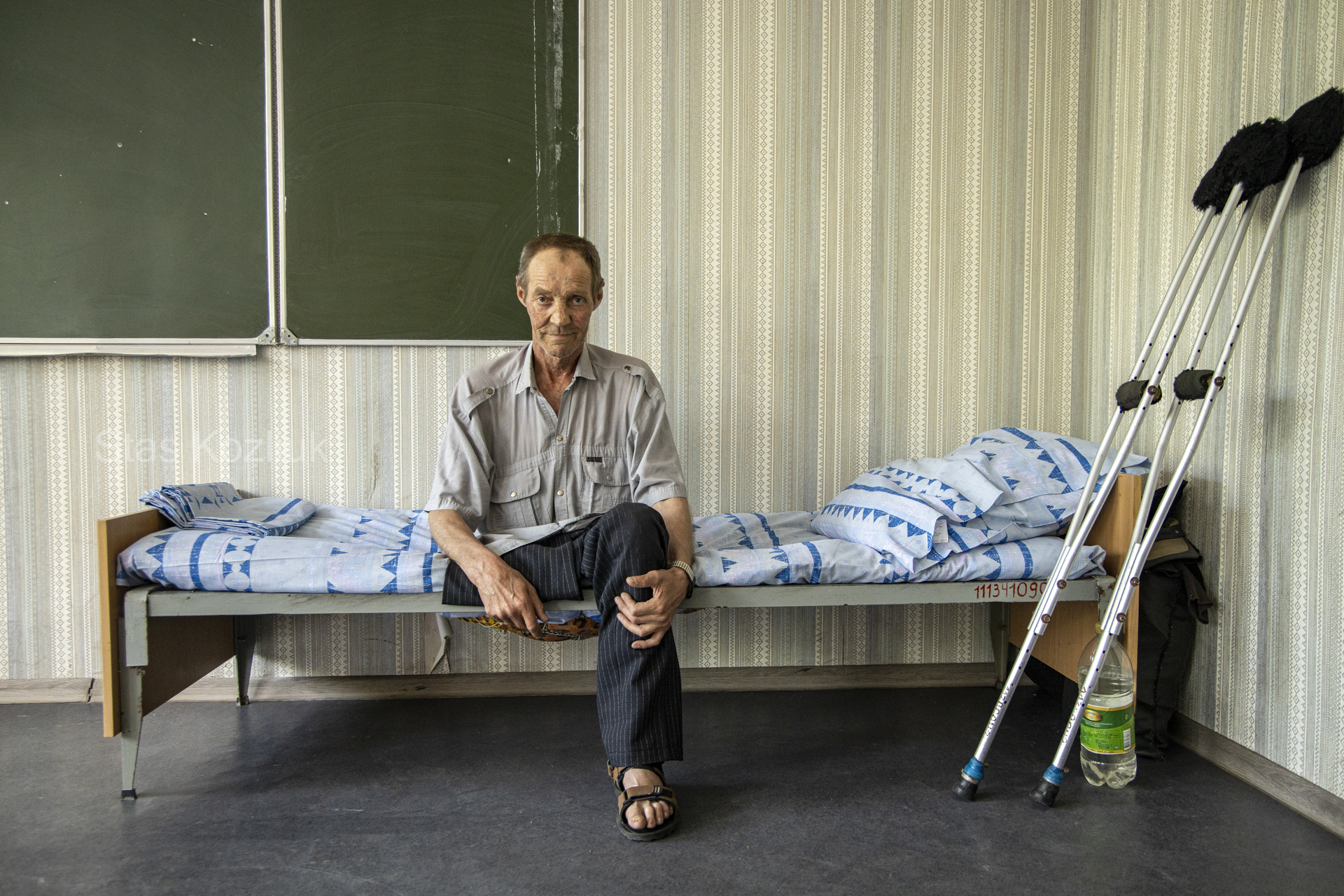
"These are vulnerable people, both then and now. Individuals suffering from serious chronic diseases, already facing challenging life circumstances, since who can protect you from a deadly illness? And now, on top of that, there are the Russians with their war.
Imagine living in a nursing home: it's spring, the garden is beautiful, the sun is shining, cherry blossoms fill the air, and then suddenly, bombing begins. You're hastily loaded onto buses and taken far from the front line to a similar nursing home. Everything seems serene there too, but soon the cherry blossoms fade, and once again, you find yourself loaded onto buses, unsure when this cycle will end or if you'll even survive it.
You're already 80 years old, longing for a peaceful life, yet constantly surrounded by mortal danger. Moreover, being constantly shuttled from one place to another makes it easy to lose touch with relatives."
The most difficult thing for Stas is to hear people asking him when the war will be over, something he can barely bring himself to reflect on.
War is incredibly difficult to comprehend. If I dwell on what I've heard and seen during this time, I fear I might lose my sanity. I've decided that perhaps, sometime in the future, after the war has ended, I can revisit these thoughts.
Although Stas doesn't allow himself to overthink his coexistence with the war, he never buries his emotions.
Rage is the strongest one he feels, because of Russia and because of his own inability to influence the whole situation.
"Russians commit terrible acts, yet few have the power to influence it. It's deeply unfair that innocent people suffer SO MUCH because of their actions, and I am powerless to help them.
It's truly frustrating and infuriating when I come across posts or materials from Western colleagues calmly debating whether Ukraine should give up the idea of reclaiming its occupied territories.
On the one hand, there are these colleagues with cynical or pessimistic viewpoints, while on the other hand, there are people here and now enduring unimaginable suffering and facing death."
However, he keeps on running. Disbelief is an anti-power that brings no good, and Stas is aware of this. Thus, he continues reporting stories whatever they can or cannot change. All he knows is that they must be told.
When, for example, I report on people who braved bombing to repair power lines with their bare hands, I also do it for them.
"Who else would be willing to scale heights of 20-30 meters while under fire to replace broken wires just so the city can have light? Yet, it is thanks to these incredible people that civilians in northeastern Ukraine had the lights stay on in their apartments. These are true heroes, and they deserve recognition and respect for their work.
However, if their stories go untold, their efforts will go unnoticed."
As someone who frequents the front line, Stas can relate to the danger these workers face.
Several gradations of (in)security become apparent upon arriving there. The first is the realization that he has transitioned from an already insecure rear to an even more perilous zone of it. Later, this journey takes its regular place on Stas's personal danger scale: he realizes that there's no turning back, so he must carry out his work where he is.
"It is very important to understand that you not just have to get there, you have to get out of there and then bring a story with you."
To do this, Stas had to learn to get along with his fear of death and listen to it.
"Fear serves as a safeguard against acting foolishly. However, when I'm already on my way or even there, it's depressing and illogical to consider turning back after driving 700-1000 kilometers for the sake of a story to turn around out of fear. My colleagues and I have never done so."
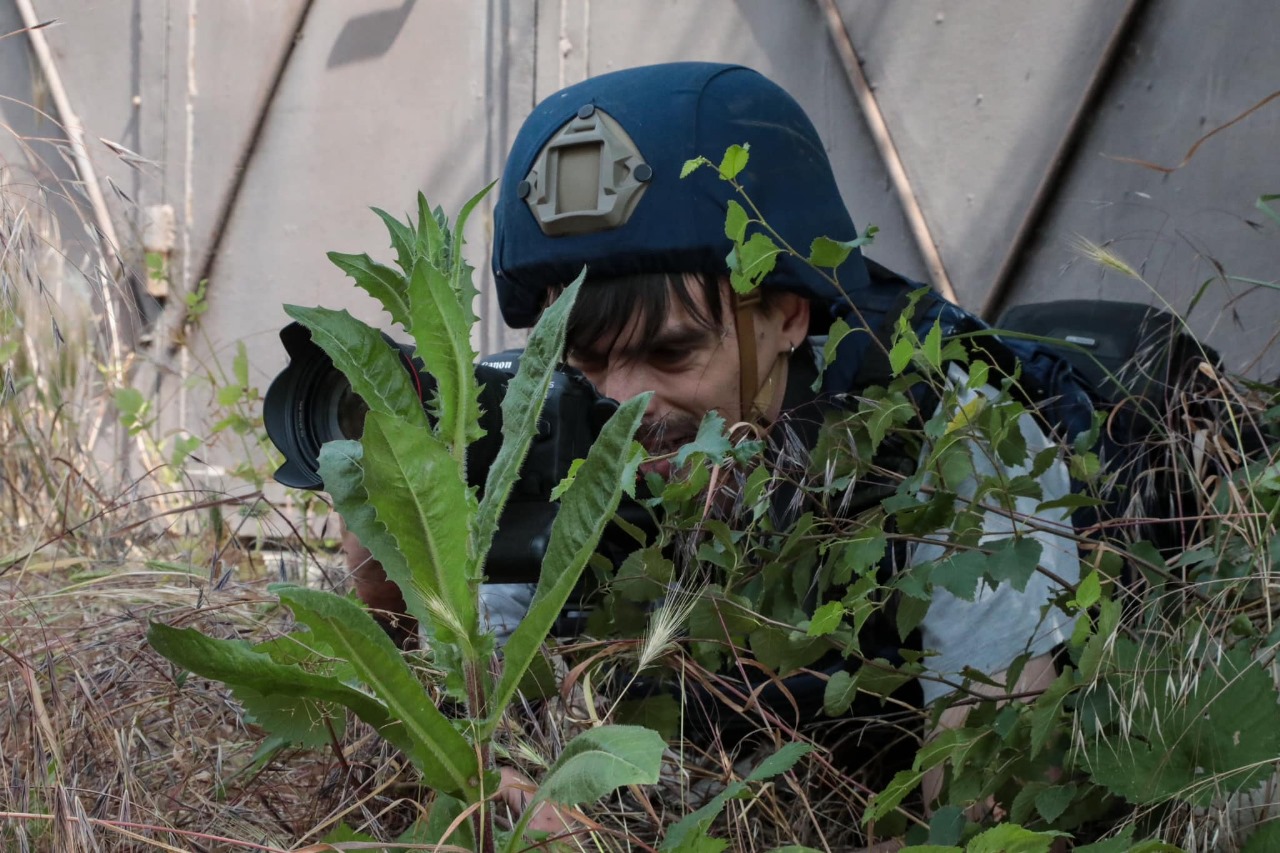
Planning is essential, Stas explains, otherwise, the risks he takes may not pay off. At the same time, it needs to go hand in hand with flexibility.
"There were instances when we faced additional work because of the Russians. For example, my colleagues and I traveled through Kryvyi Rih to cover a non-functioning grain terminal in Kherson. We stayed in Kryvyi Rih for a night when Russian missiles hit near us. Naturally, we dedicated the entire next day to reporting on the bombing, as it resulted in casualties, injuries, and destruction. It was crucial to tell this story before heading out."
After days like these, Stas says he feels contentedly tired. Yes, though he's overwhelmed with emotions and what he has gone through, he takes great satisfaction in that his work was not in vain. Oh, and to calm himself down a little, if we're already talking about it, Stas eats zefir.
Even if my photos won't change anything in this war, and they probably won't, I am working to make sure things do not get worse.
Ahough Stas personally harbors no grand illusions about his work, each of his contributions adds parts to the big bloody mosaic of Ukraine during the full-scale war.
